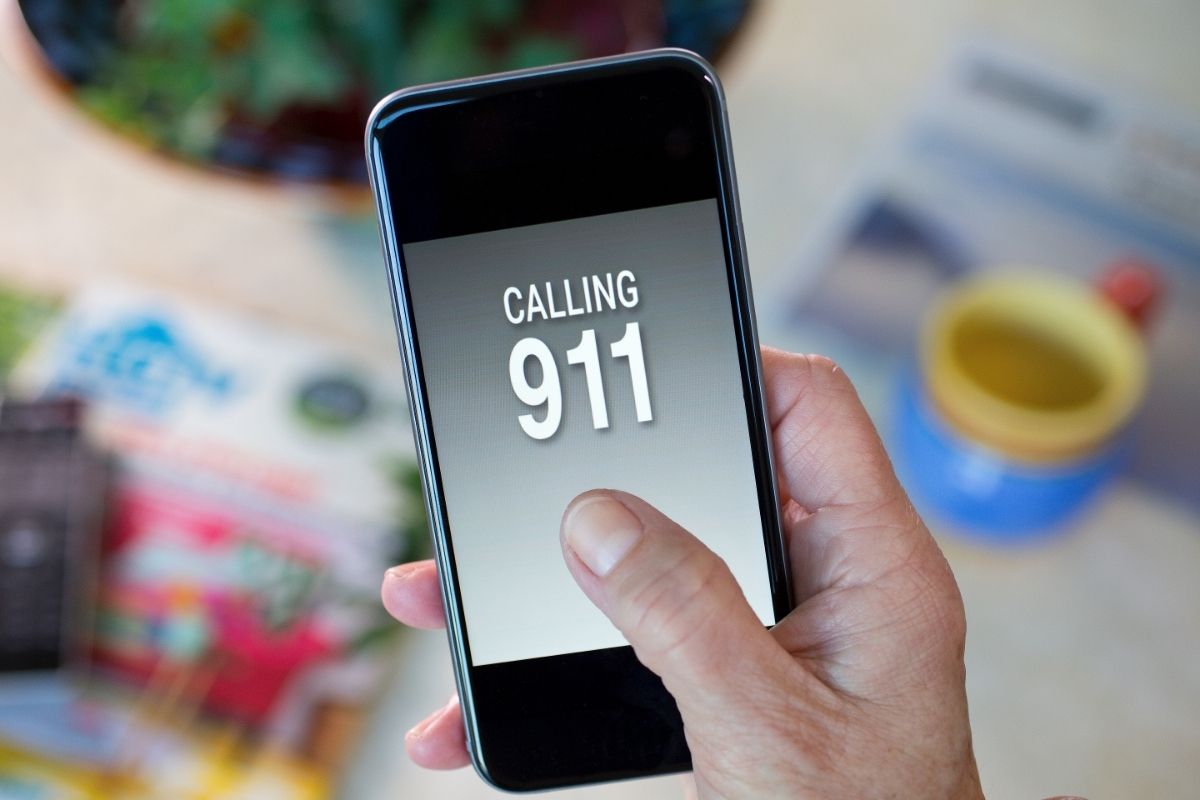What To Do When Someone With Bipolar Pushes You Away

The stigma around mental illness has been slowly fading in recent years.
More folks are feeling comfortable talking about their experiences with mental health issues.
This is awesome for those dealing with mental illnesses like depression or anxiety, because they can now get help without worrying about being judged or made fun of.
According to a study by the National Alliance on Mental Illness (NAMI), one in five Americans has dealt with some form of mental illness.
The same study found that only half of these folks got treatment for their condition.
The NAMI report also found that many people with mental illness are scared to tell others about it. They think that if they admit to having a problem, people will see them as weak or crazy.
If you know someone with bipolar disorder, whether it’s a friend or family member, you’ve seen firsthand how this illness affects them.
Depending on how severe the symptoms are, a person’s mood swings could last anywhere from a few hours to several days.
Some go through periods where they feel super energetic and manic, while other times, they feel really down and lethargic.
When someone with bipolar disorder has severe episodes, it can mess with their ability to work or function normally. If your loved one is going through extreme bouts of mania or depression, they might need professional help.
You might find that your loved one tries to push you away during these tough times. They might get mad at you for not understanding why they’re acting so weird.
Or, if they’re feeling particularly low, they might try to shut you out completely while they’re feeling down.
This behavior is often called “pushing away”. It’s common among folks with bipolar disorder, especially when they’re going through a depressive episode.
But it’s important to remember that pushing away doesn’t mean your loved one doesn’t care about you.
In fact, most people with bipolar disorder want to make sure they have people around them and that they don’t end up alone.
So what’s the best way to help in these situations? After all, you don’t want your loved one to feel even worse than they already do, and you might worry that you’re causing more harm by trying to reach out to them.
But there are ways to help your loved one understand that you love them no matter what.
What’s the Deal with Bipolar Disorder?
To really get what your loved one is going through, you need to know exactly what this disorder is. This way, you can better understand what to do when they start acting differently.
According to the Mayo Clinic, bipolar disorder is a type of brain disorder that causes unusual shifts in mood, energy levels, activity levels, sleep patterns, and thoughts.
These changes usually happen over time. For example, a person might suddenly become super happy, chatty, and energetic but later become irritable, sad, and withdrawn.
These ups and downs happen over a short period, making it hard to predict when they’ll occur.
Doctors diagnose bipolar disorder based on a mix of factors, including at least two of these four types of symptoms:
– Feeling down (sad, empty, hopeless)
– Being irritable (easily annoyed or impatient)
– Acting agitated or restless
– Losing interest in activities or not feeling pleasure
We don’t know exactly what causes bipolar disorder, but some research suggests that genes play a role.
There’s also evidence that certain things in our environment, like stress, diet, and lifestyle choices, might trigger or worsen the condition.
The good news is that bipolar disorder is treatable. Medications can control the symptoms and sometimes prevent future episodes.
How Can I Help Someone Cope with Bipolar?
Like we said before, folks with bipolar often find themselves in such dark moods that it can be tough for them to socialize.
Since these mood drops can seem to come out of nowhere without any warning, it’s no surprise that this can really take a toll on a person.
When your loved one is depressed, they might not be able to tell you how they’re feeling. If this happens, it’s important to let them know you care about them.
While there’s nothing you can do to change the situation, you can show your support by being there to listen. You can also give them space if they don’t want to be around anyone.
This can be super frustrating for you, especially if you’re worried about leaving them alone, particularly if they’ve hurt themselves before.
The situation is different depending on your relationship with this person.
If you’re dealing with a kid who’s been diagnosed with bipolar disorder, you’ll probably want to get professional advice from a mental health expert.
If you’re dealing with an adult who’s been diagnosed with the illness, you can still provide support.
Here are some things you can try:
Keep Your Cool with Your Loved One
It might seem impossible, but try to stay calm and patient. Your loved one needs you right now, even if they can’t say it.
Try not to get angry with them. Instead, try to understand why they’re acting the way they are. Try to see it from their point of view.
You might feel like yelling sometimes, but this won’t help at all: it’ll only make things worse.
Stick Around for Support
If your loved one wants to be alone, it can be tough to know if they need space or just don’t want to talk to you.
You might feel torn in these situations, not sure what to do.
The best thing you can do is stay positive and supportive.
Make sure to ask questions if they seem distant or withdrawn. If they really need some alone time, keep an eye on them so you can help if needed.
Stay close by, or ask their family to stay close if you don’t live with them.
Even if they don’t want to leave their room, make sure someone’s nearby if they need help.
If they’ve talked about hurting themselves or have done it before, ask if they could keep the door open so you can check on them.
This is also true if they’ve talked about suicide. Make sure you know where they might go and that you can call for help right away if needed.
Don’t Force Your Loved One to Open Up
If your loved one doesn’t want to talk, don’t force them to. It’s okay to ask questions, but it’s better to respect their wishes if they’re not in the mood to chat.
It might be frustrating to ask, “What’s wrong?” only to hear, “I don’t know“.
While this answer might seem weird to you, often there’s no trigger for a bipolar episode, and the person really doesn’t know what’s ‘wrong.’ Remember, this is way more frustrating for them than it is for you.
Your loved one might feel embarrassed or ashamed to tell you what’s going on. If this is the case, try to reassure them that you love them and would never judge them for anything.
Remember that your loved one is dealing with something very real and serious and that they deserve compassion and understanding, even if you don’t fully get what’s going on.
Don’t Make Them Feel Guilty
This is a mistake that many people make with their loved ones, even without realizing it.
If a person is really depressed or even thinking about suicide, you might think it’ll help to remind them of all the good things in their life.
“Think about your kids”. “Think about your family.” “You have so much potential.”
“Things could be worse”.
You might think that saying this out loud will make your loved one realize how lucky they are. But most people who are depressed or have bipolar disorder already know how lucky they are.
They know they have a loving family, friends, and opportunities.
But when they’re that deep in a dark depression, they don’t care. All they can think about is how to stop the pain, and reminding them of these things will only make them feel worse.
Besides feeling down, they’ll also start feeling guilty.
Instead, focus on helping them get through whatever is bothering them. This includes listening to them, supporting them, and being patient.
Be Ready to Call 911 If Needed
Calling 911 for a loved one during a manic or depressive episode can be one of the hardest things you’ll ever do. You might feel like you’re betraying them, especially if they say they don’t want to go to the hospital.
But if you think they might hurt themselves, call for help right away.
You might feel guilty about calling 911, but remember that you can’t control how others react to what you do.
Act fast if your loved one has said anything about wanting to hurt themselves. It’s better to be safe than sorry.
Make sure you have all the info you need before making such a big decision. This includes things like their medication schedule, recent doctor visits, and previous suicide attempts.
You might also want to call a crisis hotline. These numbers provide free phone counseling 24/7. Some of these numbers include:
– 1-800-273-8255 (TALK) – National Suicide Prevention Lifeline
– 1-800-SUICIDE (1-800-784-2433) – Crisis Hotline
– 1-800-662-HELP (4357) – Depression Helpline
Wrapping It Up
Mental illness can be super isolating for both the person dealing with it and those around them.
Seeing someone you love suffer is one of the worst things in the world, especially if you’re not sure how to help. If they’re pushing you away during this time, you might feel totally useless and hopeless.
The best thing you can do is be patient, understanding, and supportive.
It’s also super important that you take care of yourself during this time and get support if you need it. If you’re in a bad place yourself, it’ll be much harder for you to help your loved one, and the cycle will never end.
You’re not alone. There are lots of people who are willing to help if you let them. The bigger the support system, the better, and hopefully, your loved one will get through this tough time as soon as possible.
Lastly, remember that your loved one needs you now more than ever, even if they say they don’t. Don’t give up hope just yet.
Frequently Asked Questions
1. Why do people with bipolar disorder push people away?
Folks with bipolar disorder often push people away for different reasons. When they’re feeling down, they might feel overwhelmed, worthless, or like a burden, causing them to isolate themselves. When they’re feeling manic, they might push others away because they’re irritable or too focused on their own high-energy activities or thoughts. Also, fear of being judged because of their condition might make them push people away.
2. What’s unhealthy coping for people with bipolar disorder?
Unhealthy ways of coping for people with bipolar disorder might include using drugs or alcohol, isolating themselves, denying they have a problem, avoiding treatment, acting aggressively, or hurting themselves. These behaviors can make their symptoms worse, cause other health problems, and generally make it harder to manage their condition.
3. Can bipolar disorder make someone leave a relationship?
Bipolar disorder can cause instability in relationships. The unpredictable mood swings and behaviors that come with the condition can lead to misunderstandings, fights, and even breakups. Also, during manic episodes, a person might make impulsive decisions, including ending a relationship. But with proper treatment and support, people with bipolar disorder can have healthy relationships.
4. What’s unhealthy coping for people with bipolar disorder?
As mentioned before, unhealthy ways of coping can include using drugs or alcohol, avoiding treatment, isolating themselves, acting aggressively, denying they have a problem, or hurting themselves. These behaviors can make symptoms worse, create other health issues, and make it harder to manage bipolar disorder.
5. What should I do if my bipolar partner breaks up with me?
First, it’s important to understand that a breakup can be as hard for them as it is for you. You should respect their decision but also express your concern if you think their bipolar disorder might have influenced their decision. Encourage them to get help if they haven’t already. Also, get emotional support for yourself from friends, family, or a mental health professional, and take care of yourself to deal with the stress of the breakup.
6. Are breakups harder for people with bipolar disorder?
Breakups can be especially tough for people with bipolar disorder as they might make depressive or manic episodes worse. They might also trigger feelings of rejection, abandonment, or instability that can make symptoms worse. Also, the stress of a breakup can disrupt treatment or medication routines, further affecting their mental health.
7. Do people with bipolar disorder regret their actions?
Yes, people with bipolar disorder can and often do regret their actions, especially those made during manic or depressive episodes. These actions can be impulsive, risky, or out of character, leading to negative consequences that they might regret when they return to a more stable state.
8. Do people with bipolar disorder get offended easily?
Being irritable is common during both manic and depressive episodes of bipolar disorder. This could make people more likely to feel offended or react strongly to perceived slights or criticisms. But this can vary a lot between individuals and across different episodes.
9. Do people with bipolar disorder forget what they did?
Memory problems aren’t a direct symptom of bipolar disorder, but some people might not fully remember what they did during severe manic or depressive episodes, especially if these episodes involved psychosis. Also, some medications used for bipolar disorder can cause memory issues as a side effect.
10. Do people with bipolar disorder lose touch with reality?
In severe cases of bipolar disorder, people can experience psychotic symptoms, like hallucinations or delusions, during manic or depressive episodes. These symptoms can cause a temporary “break with reality”. But not everyone with bipolar disorder experiences psychosis, and effective treatment can manage these symptoms.
Always talk to a healthcare provider for personal advice.

Author: Michelle Landeros, LMFT
Michelle Landeros is a Licensed Marriage Family Therapist (LMFT). She is passionate about helping individuals, couples and families thrive.








